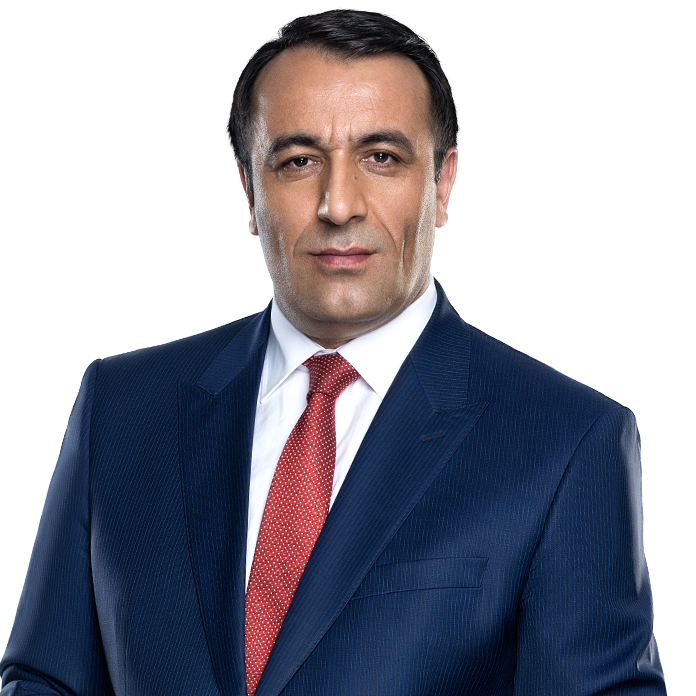The impact zone created by Russian President Vladimir Putin’s visit to Turkey continues to intensify and spread in waves each passing day. The primary reason for this is that Putin changed the South Stream card he had in hand, and has brought that into play.
Russian officials and other relevant figures have started discussing this card and are calling it the Turkish stream. When the reaction to this from European Union countries is taken into account, it is expected that new moves will result as a consequence.
The Russian economy is faced with a major crisis after the price of oil, which comprises a significant portion of Russia’s revenue, plummeted to below US$60. At the core of the policy of not reducing supply, despite an approximately 50 percent drop in the price of oil since June, lies the intention of cornering Russia.
On the other hand, the aim of Russia’s massive oil and natural gas deals with developing countries such as China and India is to show that EU countries do not comprise the sole market for Moscow.
Turkey, which is the only player with a fixed and unchanging stance in all these energy games, is keeping an eye on these finely poised balances and adopting positions on that basis.
EU REACTION DUE TO ITS HABITUAL EXPECTATIONS OF OLD TURKEY
Putin’s move to divert the route of the South Stream to Turkey and leave Bulgaria out of the game resulted in reactions from EU countries, particularly from Germany. The strange part of all this is that the EU is trying to include Turkey in its response to Russia. Furthermore, it expects Turkey, due to its position of being a country seeking entry into the EU, to back all its decisions.
This is an ingrained reflex it has developed on the basis of Old Turkey: EU countries reach a decision based on their own interests, and Turkey, without any questions, accepts it, approves it, and even becomes its fiercest defender. The results that might arise from such a decision and might be against Turkey’s interests don’t matter at all. The EU’s reaction to the Dec. 14 operation is fully related to its expectations that Turkey react in the manner the EU is accustomed to.
The South Stream Project is important for the Turkish economy in order to increase its volume of trade with Russia, in the same manner that it has had trade, economic and business relations with EU countries for years. Just like one cannot be an alternative to the other, replacing one with the other is not a strategy that New Turkey can implement with regard to its new economy.
Right up to the current year, EU countries remain Turkey’s largest trading partner, with 44 percent of Turkish exports going to the EU. It is vital for both sides that this great partnership is not damaged. If there is any economic and political dependency, then unlike the 1990s, this dependency is not one sided.
Yes, Turkey is still a candidate country to join the EU and would like to become a member. However, the attitude of surrender, and acceptance of all types of demands from the EU, just for the sake of membership, has been left in the past.
The only thing that remains unchanged is comments made about Turkey that are wide of the mark rather than based on fair evaluations. Turkey, which has been waiting for almost 50 years to become a member, is now economically better positioned than many European countries, and has made great strides in the 2000s in terms of political and social rights. This results in reaction from Turkey. Another reason why this reaction is voiced aloud is that while Turkey sees membership in the EU as a target, the EU is unwilling to forgo its own interests for the sake of this aim.
TURKEY NOT STUCK BETWEEN EU AND RUSSIA, IT IS IN ITS OWN PLACE
To the same degree that EU countries are important for Turkey when it comes to both economic and political ties, Russia is a neighbor that it cannot dispense with. The EU wants Turkey to join it in applying economic sanctions it has placed on Russia. The routing of the South Stream Project through Turkey will, in a sense, make Turkey a bridge for the natural gas that will go to Europe.
When it is taken into account that its energy needs will increase in the short and medium term and that a large part of this need will be sourced from Russia, then, in one way, the solution to the EU-Russia equation is in our hands.
But forcing Turkey to make a choice between the two sides in this equation doesn’t look like a realistic approach for Turkey, which determines its own economic and political agenda. Just as was seen with its relationship with Russia, it will be Turkey’s national interests that will determine its relations with the EU.
This is why efforts to place Turkey in a predetermined position should be discontinued. Turkey will not be sandwiched between the EU and Russia, but is finding its own place based on its own specific standing.
twitter.com/erdalkaragol




















